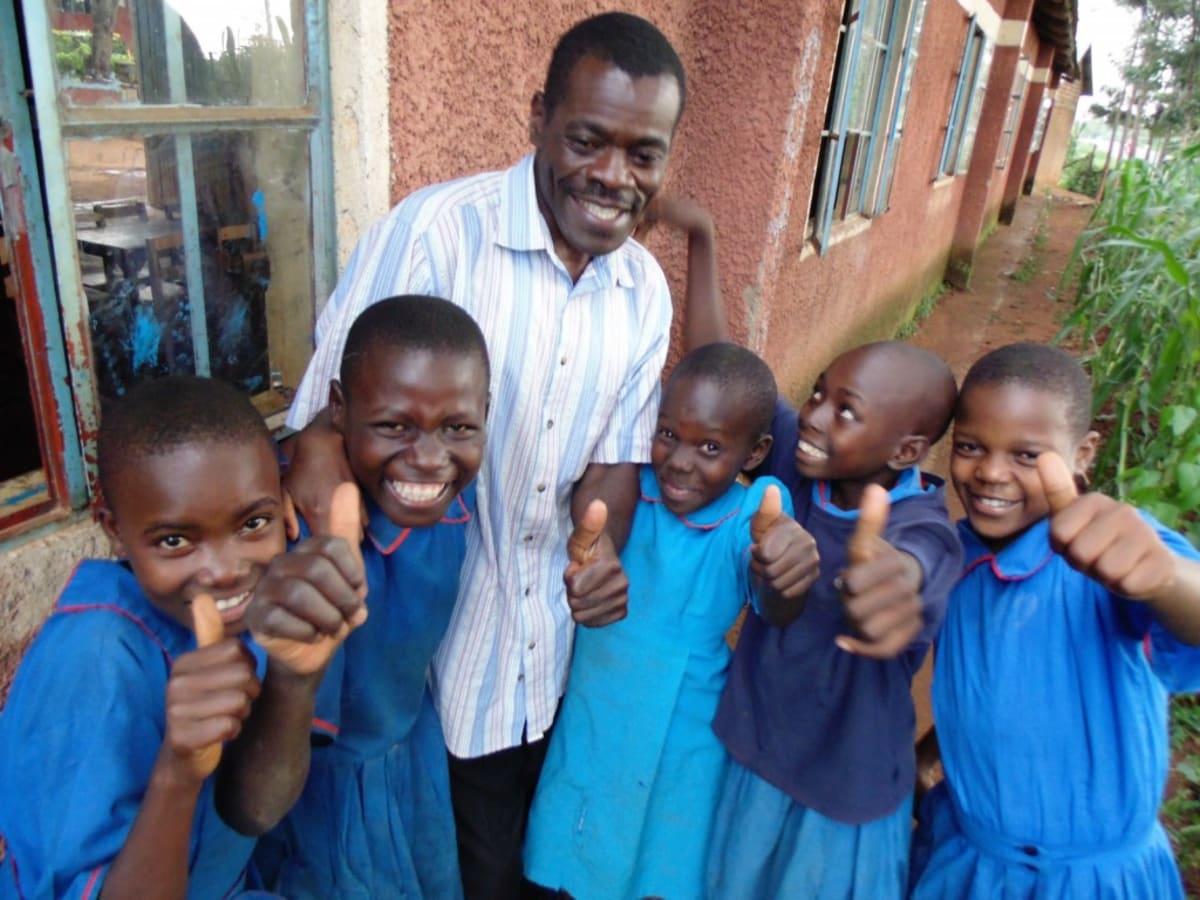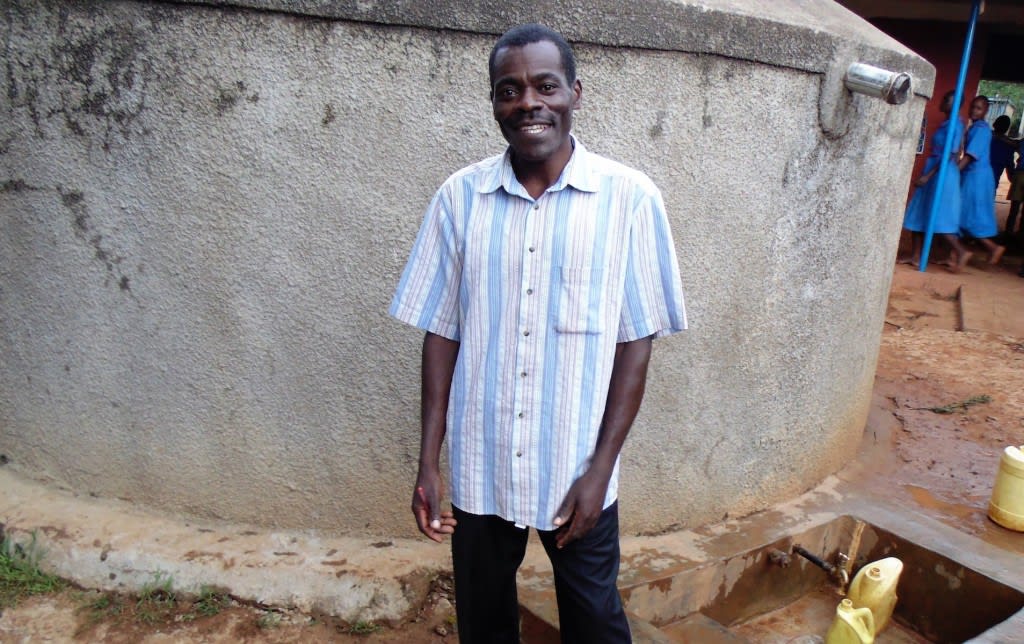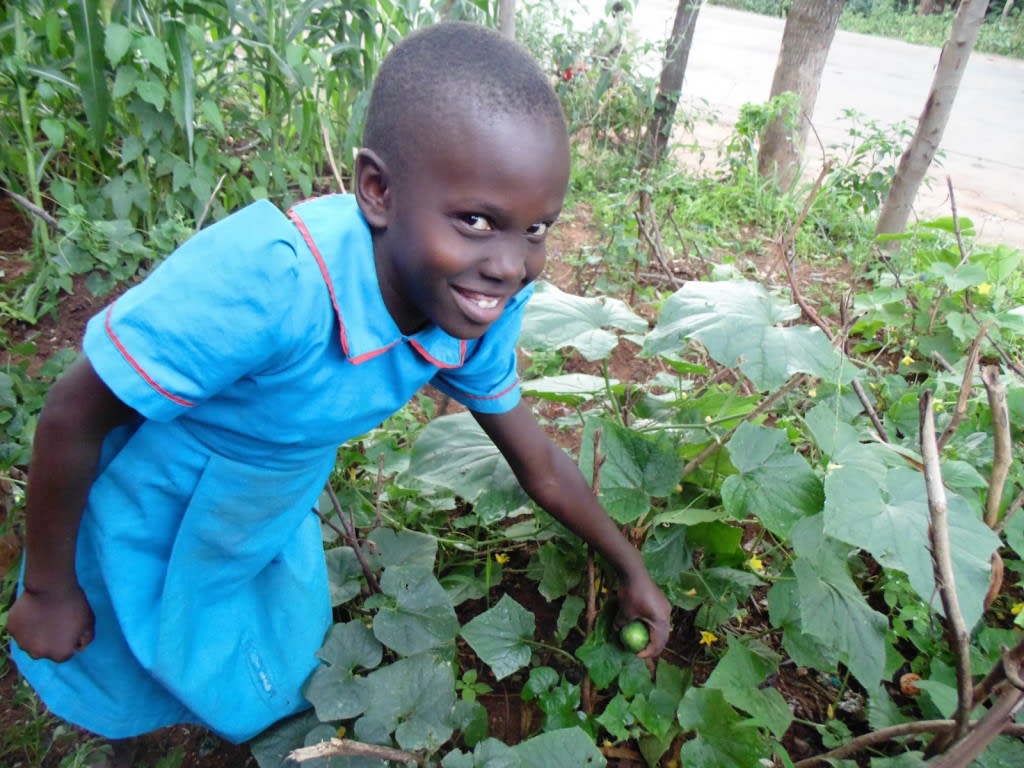A Year Later: Emusutswi Primary School

A year ago, generous donors helped build a rainwater catchment system and latrines for Emusutswi Primary School in Kenya. Because of these gifts and our monthly donors, partners are able to visit project sites throughout the year, strengthening relationships with communities and evaluating the actual water project. These consistent visits allow us to learn vital lessons and hear amazing stories – we’re excited to share this one from partner, Erick Wagaka, with you.
The most notable improvements are on general hygiene, sanitation and time management. Teachers feel they now have more quality time with the pupils and the teaching environments have been made more conducive. This is because there is now a high standard of hygiene within the classroom, both for the pupils and on the teaching aids. Similarly, pupils feel highly empowered, mentally secure and more motivated to work toward their various academic goals because they are not bothered to carry water from home or sent to fetch water from sources outside the school compound.

“Pupils now have sufficient time for their studies and to do other school routine activities such as cleanliness”, says senior teacher Joseph Indiakha. “Before the tank was constructed, at least 10 minutes of every lesson times risked being terribly wasted when pupils were asked to go to look for water. Furthermore, the tank has not only helped to redeem this time but has also been a pool factor; attracting many new pupils who are being enrolled into the school as a matter of fact. Also, sanitation has improved. A new person can wonder aloud whether the latrines are being used since they are clean and totally free of smell, courtesy of this water tank plus the health and hygiene tips taught during CTC training.”

Phanice Lugutsa, a 13-year-old female student explains how access to clean water has changed her life. “We don’t waste time to go to the spring. Initially, we would line up at the spring because it was being shared with other community members. Our teachers are now proud of us because we can easily maintain hygiene and utilize our study time without complaints or excuses like before. We no longer make textbooks dirty because we have managed to keep ourselves clean and our classrooms free from dust,” she says.

The school community will be trained and supported to do tank treatment on regular basis to curb any possible waterborne diseases as a result of possible bacterial accumulation. The treatment will be done on a quarterly basis.
It was very impressive to note that teachers have made the most use of the water to make modest teaching demonstration models for practical illustration of basic science principles. These include demonstration sites for farmyard manure, vegetable gardens/ nursery beds, drip irrigation and growth pattern for crops with tendril-like beans. These creative initiatives have encouraged pupils to guard, value and cherish the water tank and to internalize the importance of water beyond and above peripheral meaning. This school has made the most of the water resource using it for drinking, cooking, cleaning of classrooms and latrines and for science club garden works.

The Water Project and our partners are committed to consistent monitoring of each water source. Our monitoring and evaluation program, made possible by monthly donors, allows us to visit communities up to four times a year. Read more about our program and how you can help.
See The Water Project in Phanice Lugutsa's Community »